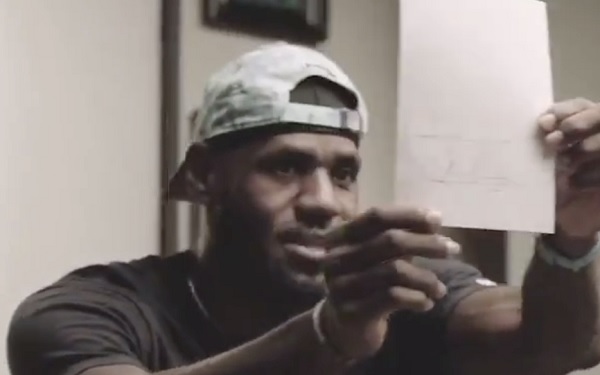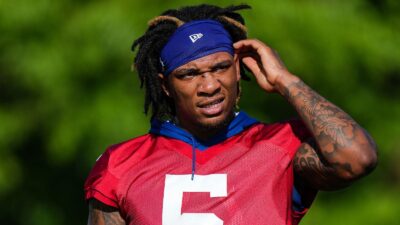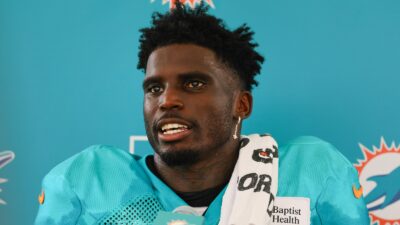
California has signed into law SB 206, a bill that allows college athletes to profit off their image and likeness. This is a potential game-changing step in the movement towards altering the NCAA’s stance on student-athletes receiving money. Many people have questions about the bill, so we have decided to answer those questions.
WHAT IS IT?
SB 206 is a bill signed into law by California that would allow college athletes to profit off their name and likeness. It would take effect in 2023. There are two important caveats to the law:
1) This only applies to athletes at schools with media rights fees of at least $10 million in rights fees (Pac-12 schools like Stanford, Cal, UCLA and USC)
2) Any deal these athletes sign cannot be in conflict with a school’s current endorsement deals – for example, if the school is sponsored by Nike, the athlete can’t cut a deal with Under Armour.
This is big because student athletes have not had an opportunity to profit off their name and likeness in the past. Any money they made could have come through shady, under the table means.
WHO ELSE IS DOING IT?
New York and Florida are other states working on similar legislation
WHAT DOES THE NCAA SAY?
The NCAA is not a fan. They believe strongly in the principles of amateurism. At first they threatened to ban California schools from competition over the bill, but their latest statement suggests they are willing to make some changes so long as there is uniformity across the country rather than different laws per state, as would be the case if each states passes a different bill.
WHAT ARE THE IMPLICATIONS?
This bill allows student athletes to capitalize on a potential limited window of fame during their life. Some players go pro and will make lots of money during their careers, but that is a tiny percentage of all college athletes. However, there are several student-athletes who have popularity simply because they play for a team that has a large following. These athletes might be able to earn some extra money while in school by doing an ad for a local business, like a car dealership or sporting goods store.
A guy like Johnny Manziel who was an absolute star in college but didn’t have a long pro career would have been able to make money through deals while his fame was at its peak — when he was in college. Athletes who participated in the Olympics and became famous — like gymnasts — would still be able to sign deals even if they compete in college sports, unlike present circumstances where they cannot.
POTENTIAL DRAWBACKS
Some feel that the rules can widen the gap between schools. The schools in California that receive $10 million in media rights fees are UCLA, Cal, Stanford and USC. Athletes at those schools would be able to benefit off this bill.
Athletes at smaller schools like Pepperdine, LMU, Fresno State, Cal State Fullerton and Sac State would not.
Would that create a larger talent gap between these schools? Potentially, but these large schools already were viewed as more desirable by most student-athletes. And since there is still limited space on those teams and a greater supply of athletes who want to play college ball, those other student-athletes will still seek opportunities to receive playing time and scholarships, which these other programs can offer. I don’t see this talent gap changing much as a result.
IS THIS GOOD OR BAD FOR COLLEGE SPORTS?
This is good because it allows student-athletes to capitalize on what the market says they are worth.
This can be bad if it’s a gateway to outright paying the players.
What’s the problem with paying the student-athletes? The current scenario allows student-athletes to add revenue streams to pay themselves. In the latter scenario — outright having schools pay student-athletes — you’re taking money out of an already limited pie.
Most athletic departments at schools lose money. Many people fail to realize this. Having athletic teams is very expensive — you’re flying or transporting these players all over the country and putting them up at hotels for road games. They require full-time coaching staffs and equipment. That costs a lot of money, and with the exception of football, men’s basketball, and a few other select sports (SEC baseball, Tennessee women’s basketball), most teams are losing money. Schools already provide tuition, books, meals and stipends for many athletes, and lose money in the exchange. If you’re asking the schools to now pay players, there would be significant consequences, likely starting with cutting out every money-losing (aka “non-revenue”) sport. You can then forget about most colleges having volleyball, soccer, swimming, water polo, gymnastics, baseball, softball, wrestling etc. programs.
CHANGES I WOULD MAKE
I would make three changes to the bill:
1) Only allow the deals to be arranged through the schools, not agents. There are two reasons for this. The deals cannot be in conflict with a school’s current deal. Who’s more likely to know those deals better: someone who works for a school, or an agent who would have to know the deals at 100 different schools? Two, introducing agents into the picture just makes things much more business-like and starts getting things closer to professionalism. I would rather keep things working through the schools, who know all the rules and deals.
2) Put the money into escrow accounts. I would have any money student-athletes receive through these deals go into escrow accounts that they cannot touch until two years after they graduate or two years after their eligibility has been exhausted. The concept of amateurism still has a lot of societal value. It’s important to try and protect these young student-athletes and let them focus on school and sports more than the money. This provides incentives for young student-athletes to think long-term and not blow the money on say, throwing a killer party while in school.
3) Rather than limit this to schools with $10 million in media rights, let all of them do it. Why put that restriction on who can earn?













